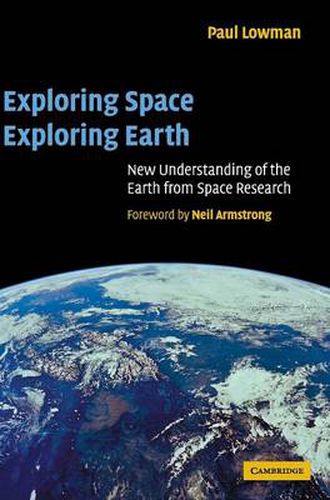Readings Newsletter
Become a Readings Member to make your shopping experience even easier.
Sign in or sign up for free!
You’re not far away from qualifying for FREE standard shipping within Australia
You’ve qualified for FREE standard shipping within Australia
The cart is loading…






Paul Lowman, a NASA scientist for over 40 years, describes the impact of space flight on geology and geophysics. A foreword by Neil Armstrong emphasizes that the exploration of space has lead us to a far deeper understanding of our own planet. Direct results from Earth-orbital missions include studies of Earth’s gravity and magnetic fields. In contrast, the recognition of the economic and biological significance of impact craters on Earth is an indirect consequence of the study of the geology of other planets. The final chapter presents a new theory for the tectonic evolution of the Earth based on comparative planetology and the Gaia concept. Extensive illustrations, a glossary of technical terms, and comprehensive bibliography, provide geologists and geophysicists with a valuable summary of research. The book will also serve as a supplementary text for students of tectonics, remote sensing and planetary science.
$9.00 standard shipping within Australia
FREE standard shipping within Australia for orders over $100.00
Express & International shipping calculated at checkout
Paul Lowman, a NASA scientist for over 40 years, describes the impact of space flight on geology and geophysics. A foreword by Neil Armstrong emphasizes that the exploration of space has lead us to a far deeper understanding of our own planet. Direct results from Earth-orbital missions include studies of Earth’s gravity and magnetic fields. In contrast, the recognition of the economic and biological significance of impact craters on Earth is an indirect consequence of the study of the geology of other planets. The final chapter presents a new theory for the tectonic evolution of the Earth based on comparative planetology and the Gaia concept. Extensive illustrations, a glossary of technical terms, and comprehensive bibliography, provide geologists and geophysicists with a valuable summary of research. The book will also serve as a supplementary text for students of tectonics, remote sensing and planetary science.